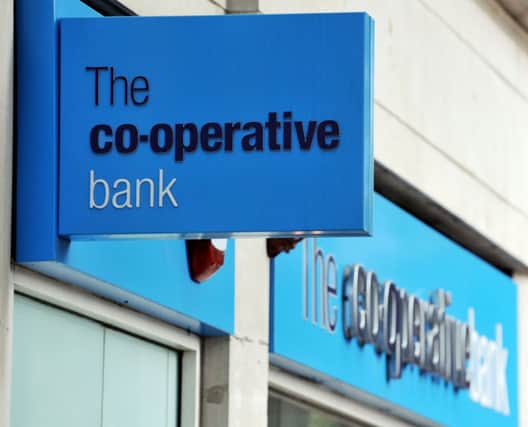Co-op Bank blacklists frackers and payday lenders in bid to ‘rebuild trust’


It has also added firms which do not responsibly pay their taxes and those involved in irresponsible gambling to the blacklist of organisations that it will not provide banking services to, as part of a revamp of a policy which sits at the heart of its values and ethics.
The Co-op’s ethical policy has been expanded after more than 74,000 people took part in a survey last summer.
Advertisement
Hide AdAdvertisement
Hide AdThe policy enables customers to have a say in how the Co-op operates. The bank said it has led to it turning away £1.4 billion-worth of business since the policy was set up more than 20 years ago.
As well as restricting finance to certain groups, the policy also commits the bank to supporting organisations seen as having a positive community, social and environmental impact such as charities and credit unions.
The policy, which has been revised five times since its launch in 1992, already covered the bank’s stance on human rights, international development, ecological impact, animal welfare and social enterprise.
It also offers an insight into how people’s ethical priorities have shifted over the years. The latest findings show that promoting and protecting human rights remains the biggest concern. However, supporting economic and social development within the UK has moved up to become the second biggest issue of importance.
Advertisement
Hide AdAdvertisement
Hide AdSix years ago, the last time the policy was changed, ecological sustainability was the second biggest issue, behind human rights. The Co-op has previously admitted it was shedding current account customers as its reputation took a battering in the wake of financial turmoil and the drugs scandal involving former chairman Paul Flowers.
Niall Booker, chief executive of the Co-operative Bank, said: “We know that we still have much more to do to get the bank back on track and we know we have made our share of mistakes in the past, but the relaunch of this policy is an important step in rebuilding the Co-operative Bank as we listen to our customers and rebuild trust.”
Payday lenders generally have to operate under much stricter rules following a series of clampdowns by the City regulator, amid fears that some lenders were previously basing their business models around people who were never going to be able to pay back their loan on time, meaning the cost ballooned.
The payday industry has come under a storm of criticism from consumer groups and charities in recent years, with the Archbishop of Canterbury also wading into the row.
Advertisement
Hide AdAdvertisement
Hide AdThe Co-op said it will also be looking to make sure that the products and services it offers to customers are shaped by the feedback it has received, with many consumers saying it is important that it operates with “honesty and transparency”.
When asked what products and services they thought the Co-operative Bank should offer to show that it is operating in line with its values, mortgages for first-time buyers and young people came out top of the list.
The Co-op reports back to customers annually on the progress of its ethical policy.
Last spring, the scandal-hit bank launched a new drive to win back customers and rebuild its ethical reputation with a £125 current account switching offer which includes a donation to charity.
Founded in 1872, the Co-op grew out of the Rochdale Society of Equitable Pioneers, who came together on a basis of political and religious neutrality with the aim of building a better society.